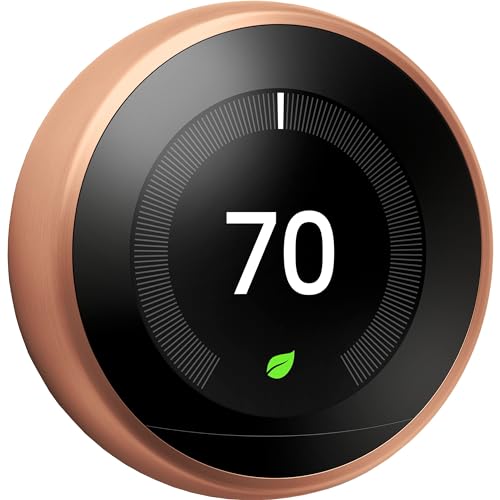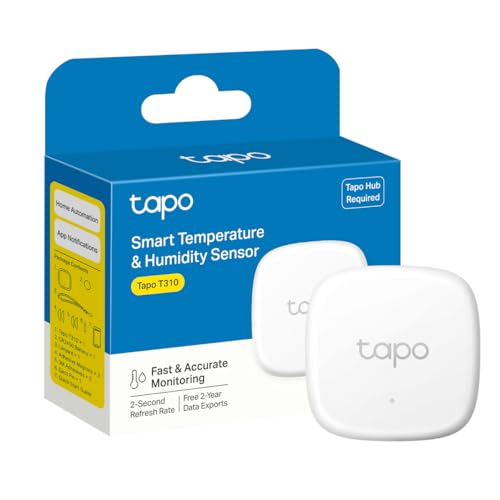This is the temperature your home should be to avoid damp, mould and condensation, according to experts
Experts also warn not to let your home drop below 14 degrees

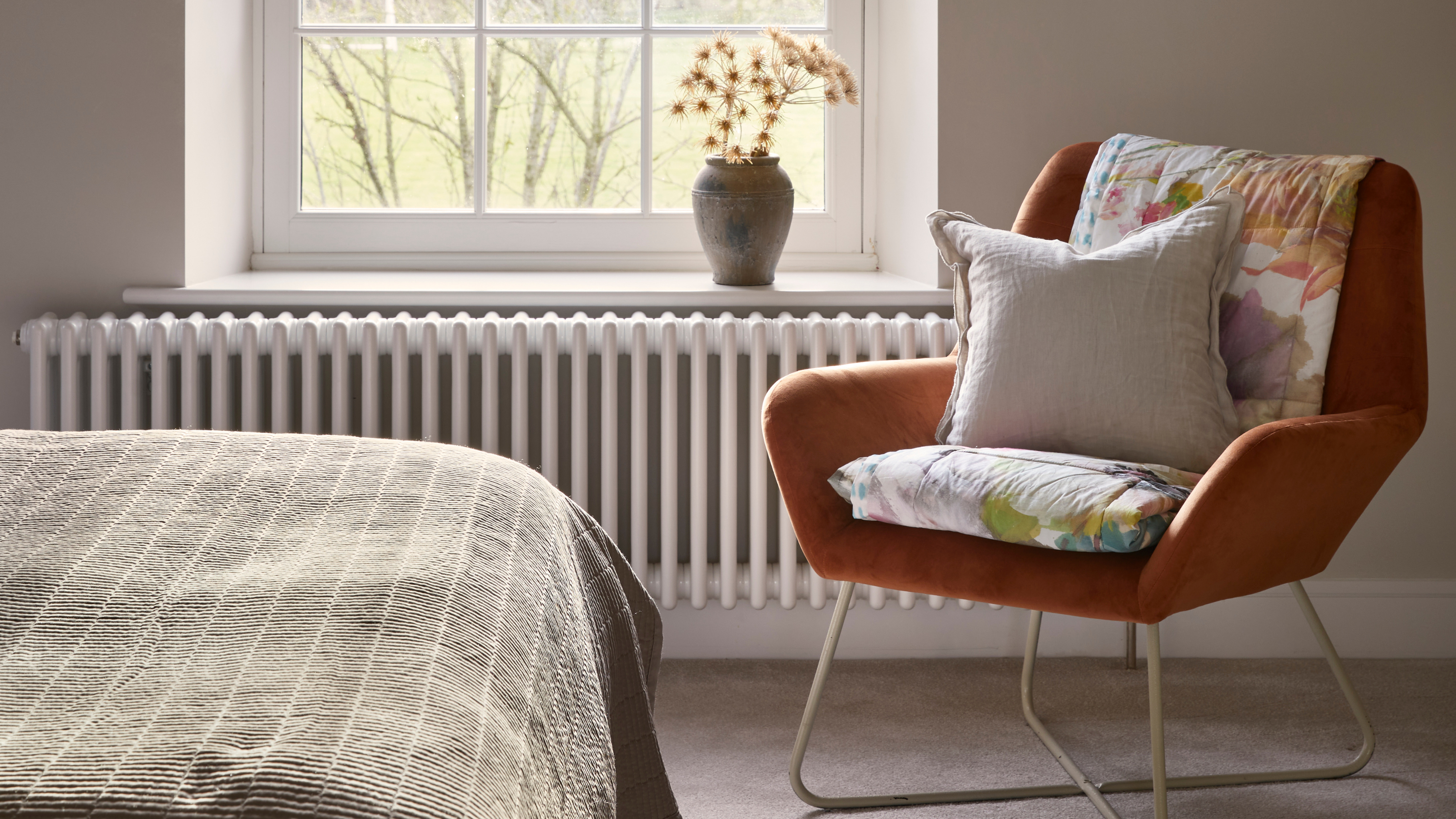
Keeping your thermostat set to a constant temperature is one way to prevent damp and mould this winter experts are recommending.
Mould is something we all dread returning every winter as it's bad for your health and home. While we all need to know how to stop mould from coming back, what if we could prevent it from growing in the first place?
Mould thrives in wet, damp conditions, which is why investing in one of the best dehumidifiers is one way we can keep humidity levels low in our homes.
However, experts have revealed that keeping your home at a set temperature can reduce the humidity in your home and therefore the amount of damp, keeping mould at bay.
But is this the most energy-efficient way to stay mould-free this winter?
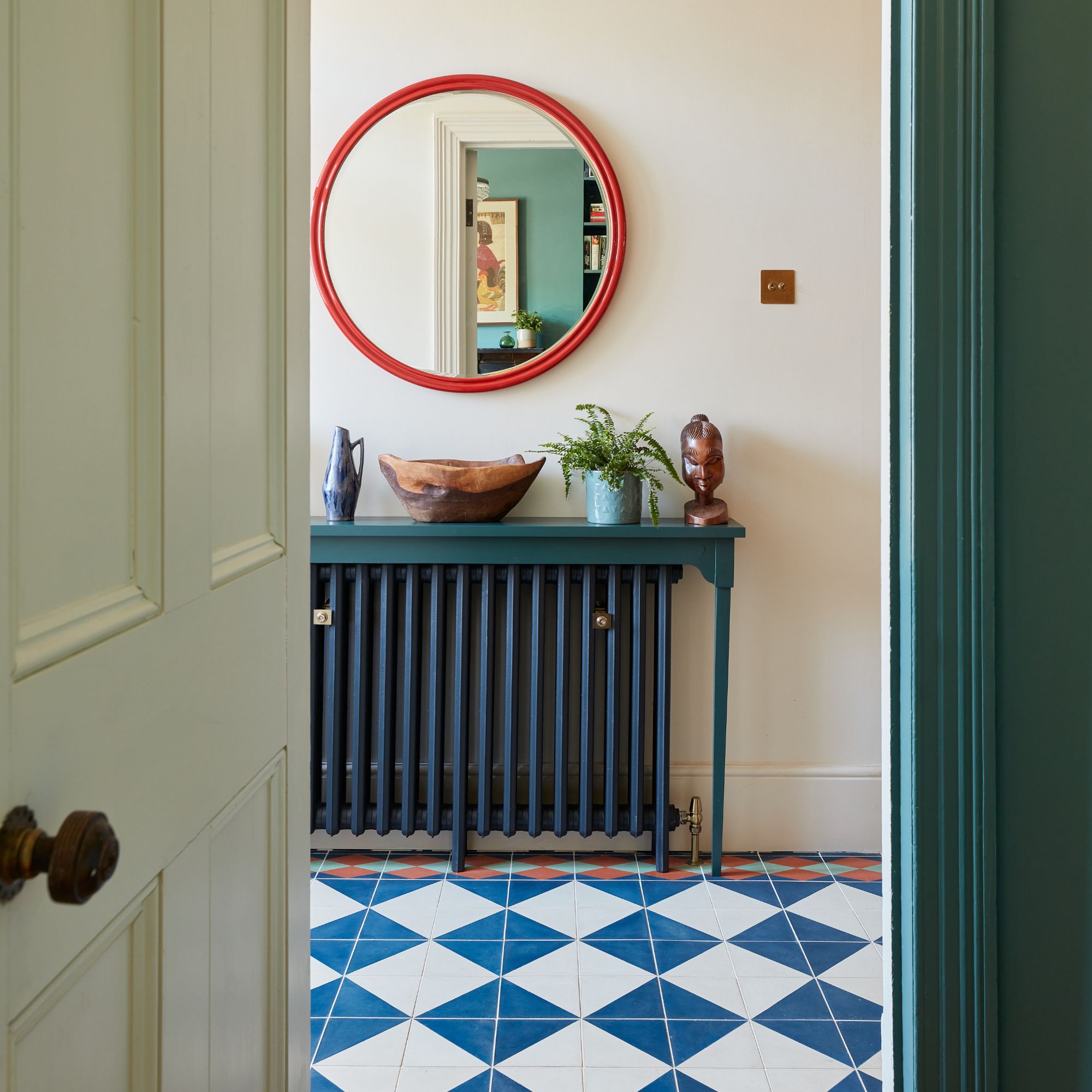
How does the hack work?
‘It’s important to keep your rooms consistently heated to prevent condensation and high humidity, as this will keep the water in the air in vapour form by preventing it from cooling too much. It will also increase the air’s circulation, allowing it to cycle out of the room more easily,’ comments Stephen Hankinson, heating expert at Electric Radiators Direct.
Maintaining air-flow is vital when it comes to reducing condensation in your home. Alongside keeping your thermostat at a steady temperature, it’s also recommended that you burp your home, whereby you open your windows for short bursts to maintain a flow of air around the home.
Sign up to our newsletter for style inspiration, real homes, project and garden advice and shopping know-how
It may sound counterintuitive considering you have the heating on, but keeping a steady flow of air at the same temperature is vital for stopping condensation from forming.
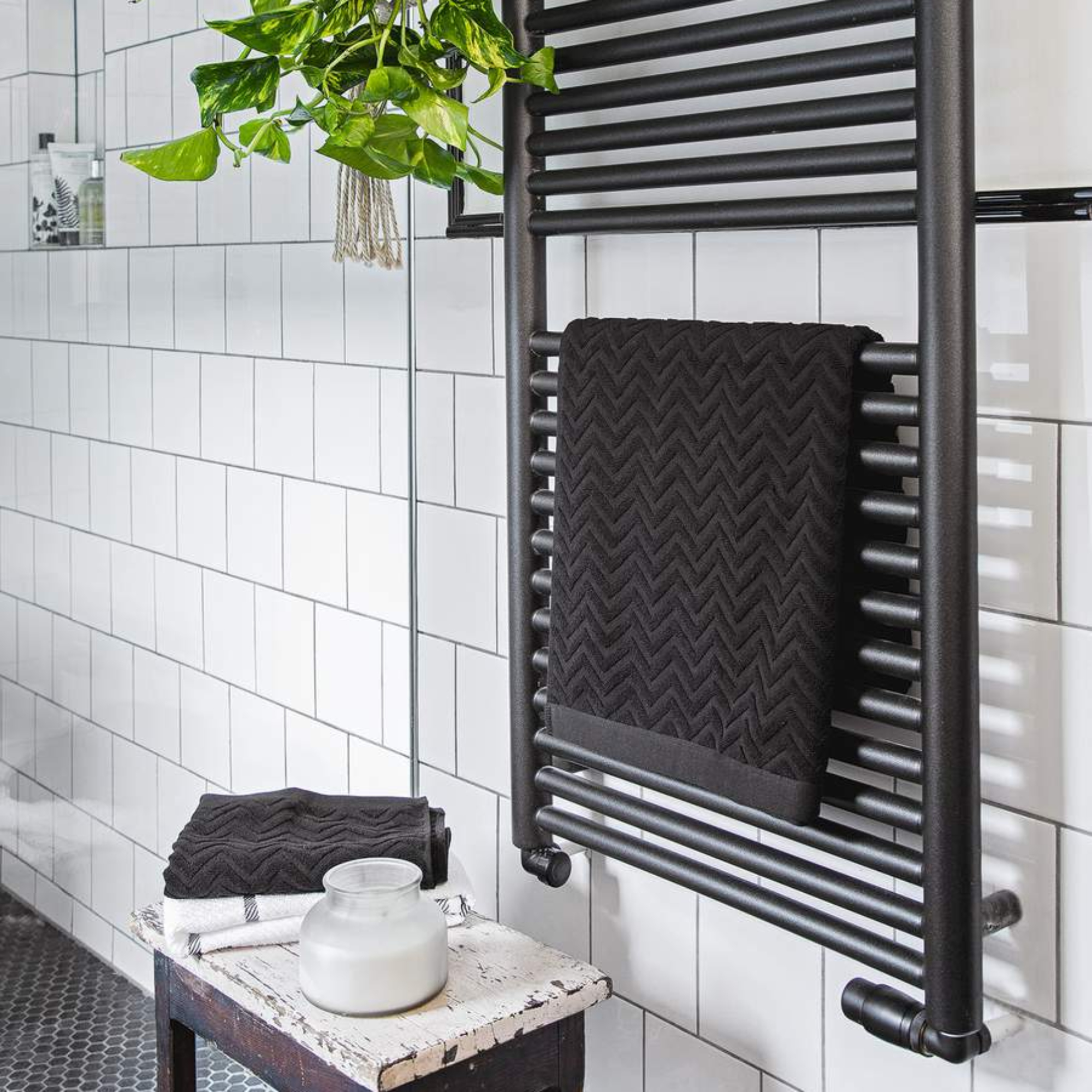
What temperature should I keep my home at?
There is a little dispute over what is the best temperature to keep your home at, however most experts agree that 14 degrees should be your minimum temperature, although the ideal temperature is higher,
‘Maintaining a temperature above 16°C can help reduce condensation, but 14°C should be the absolute minimum,’ says Ian Mclaren, founder of Dwellow. ‘This is particularly relevant in areas that are less ventilated, such as cupboards or behind any furniture that is up against an outside wall.'
A smart thermostat will help you make sure your home stays at a consistent temperature of your choosing, whether you're on the sofa or away for a few days. Here are a few of our favourites.
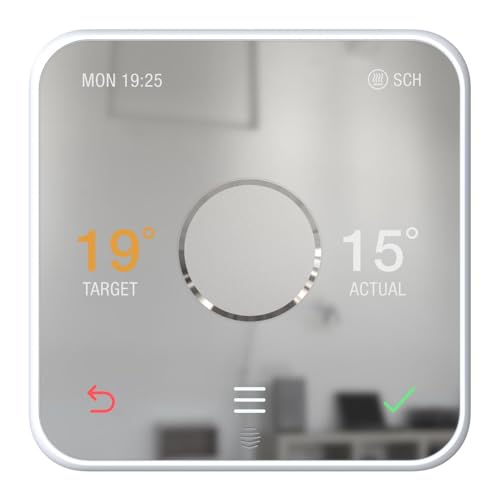
The Hive lets you set up to six daily time slots and has automatic frost protection to prevent frozen pipes. This model is for a Combi Boiler, but there is a version for a Conventional Boiler, too.
‘The ideal temperature is somewhere between 18-20 when you are in the house to keep condensation to a minimum. You can buy humidity sensors to help maintain levels below 60%, it can take just 24 hours for mould to start appearing above these levels and if you are struggling to keep the levels below 60% then you might want to consider one of the best dehumidifiers.’
If you don’t have a humidity sensor, there are physical signs you can look out for. The most noticeable is condensation. If you spot condensation on mirrors or windows then the humidity levels in your home are too high. If this happens, opening your window or switching on a dehumidifier can reduce the amount of moisture in the air.
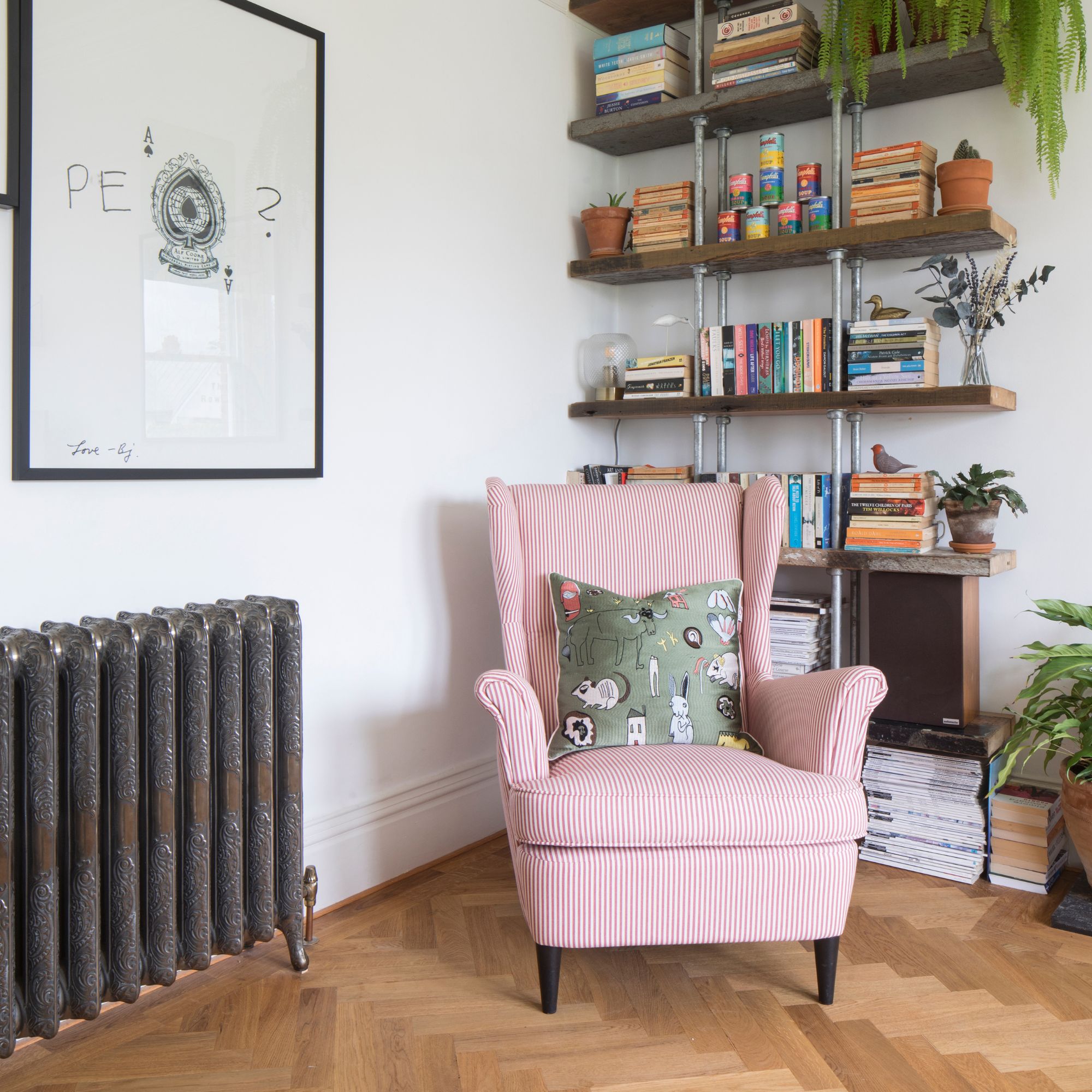
Is this method energy efficient?
The idea of keeping your heating on may raise your heartbeat a little bit - especially given the rising costs of energy bills.
However some experts have argued that it can actually help your costs down, provided your home is well insulated. This is because your boiler system is not working as hard by repeatedly heating up a cold house.
‘In a well insulated home you can run a steady temperature to keep the home warm and using this method may save you money on your bills as well,’ confirms Ian.
‘It will be more expensive, in general, to keep heating on throughout the day in a poorly insulated home, so improvements to insulation might be one way to tackle mould without increasing the energy bills.’
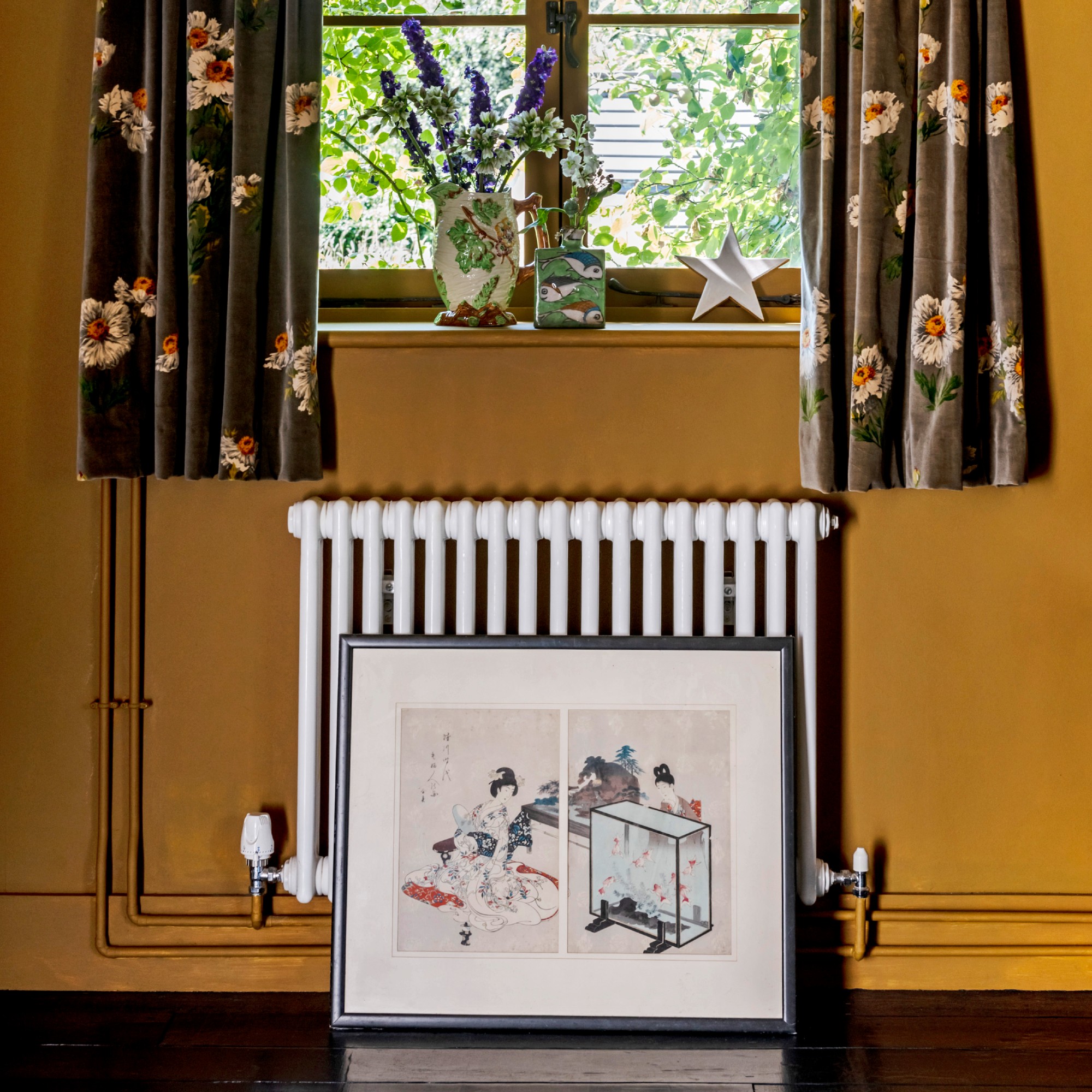
Stephen is not entirely convinced this is the most energy-efficient method, either.
‘Having your heating set to a low temperature – say 14o-16o – means it is not set to a level that you are likely to be comfortable in, so you’ll be turning it up at some point and spending more money,’ he says.
‘If your home is poorly insulated, then too much moisture may be entering your home, and heating and ventilating may only do so much.’
If you already have a well-insulated home, this is a method for you. However, if your home is particularly draughty it may be more expensive to keep your heating system on.
‘It is a good strategy to use, as part of a broader plan to prevent mould. If you combine steady heating with dehumidifiers, better insulation and improved ventilation then it can be very effective,’ says Ian.
‘Keep an eye out for potential sources of moisture that could undo this work though; sort out any leaks as soon as you find them and avoid hanging your washing on the radiators, especially in rooms prone to damp, as this will put moisture into the air.’
This method does not promise to remove all mould, damp and condensation. However, keeping your home warm and humidity-free this winter will be the key to keeping mould at bay.

Kezia Reynolds joined the Ideal Home team as News Writer in September 2024. After graduating from City, University of London in 2022 with a bachelor’s degree in journalism, Kezia kicked off her career spending two years working on women’s weekly magazines. She is always on the lookout for the latest home news, finding you the best deals and trends - so you don’t miss a thing!
